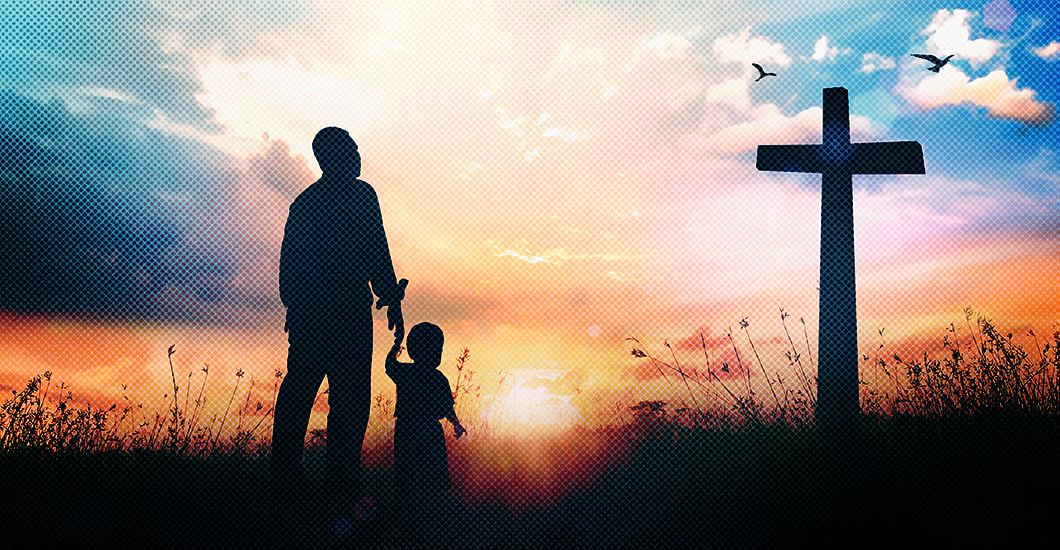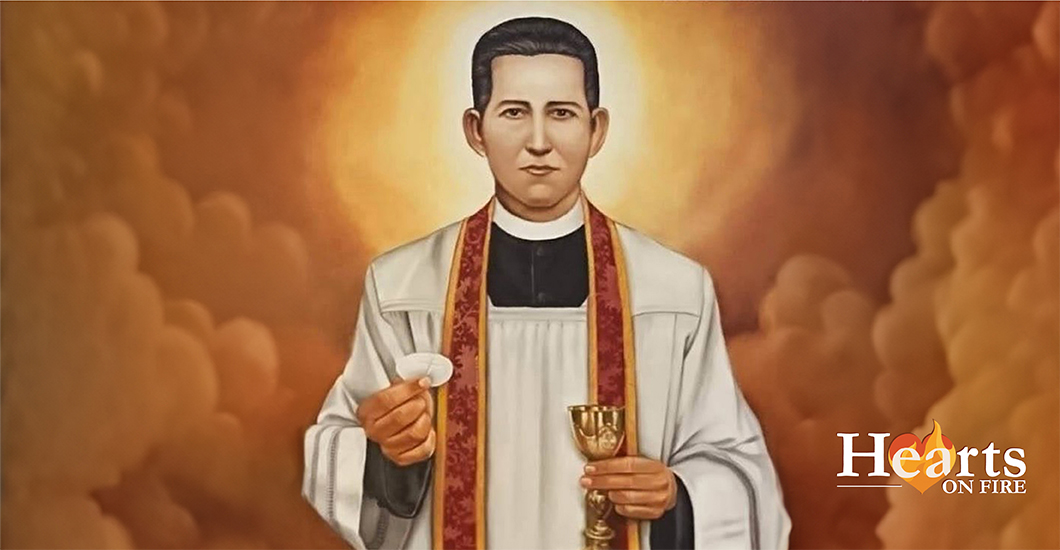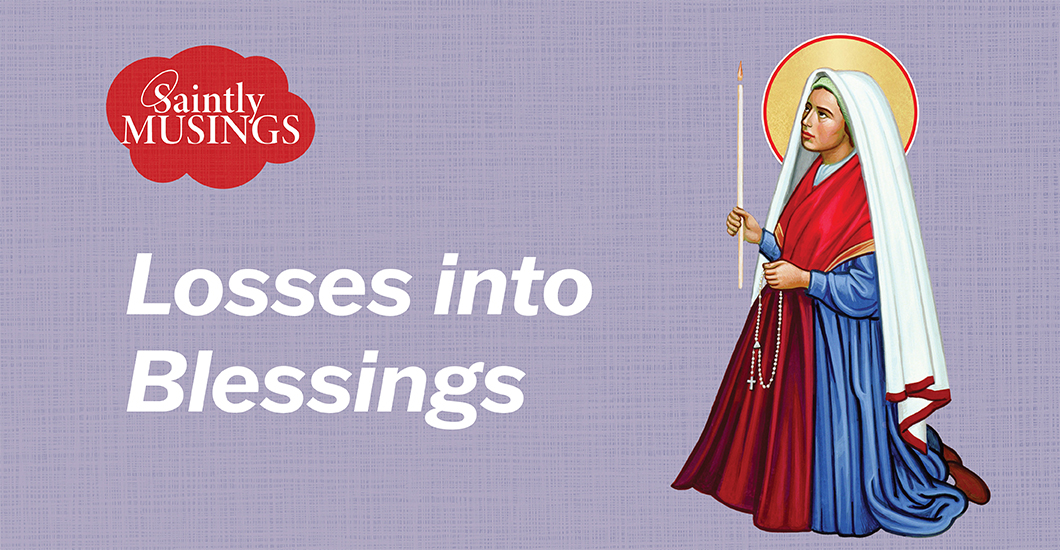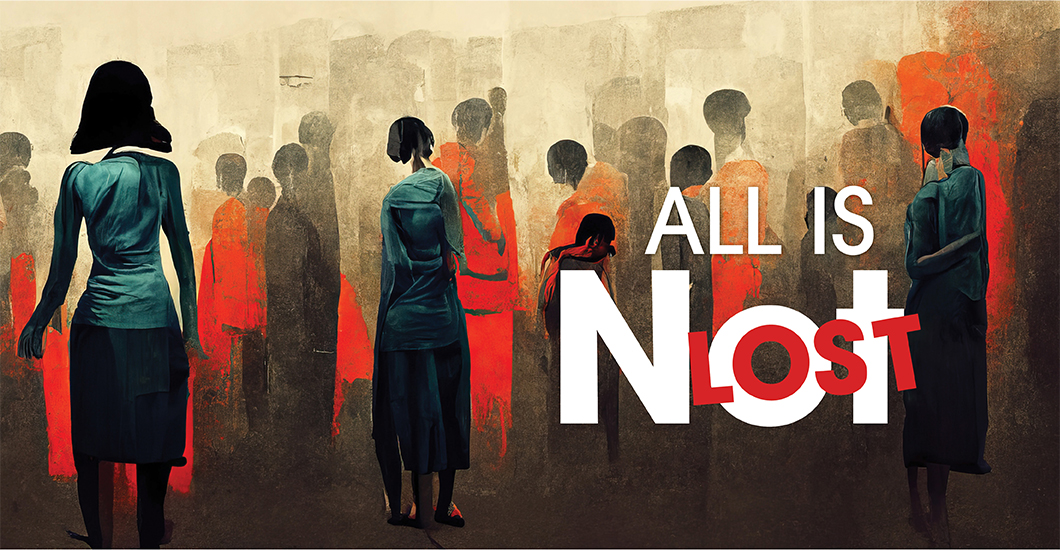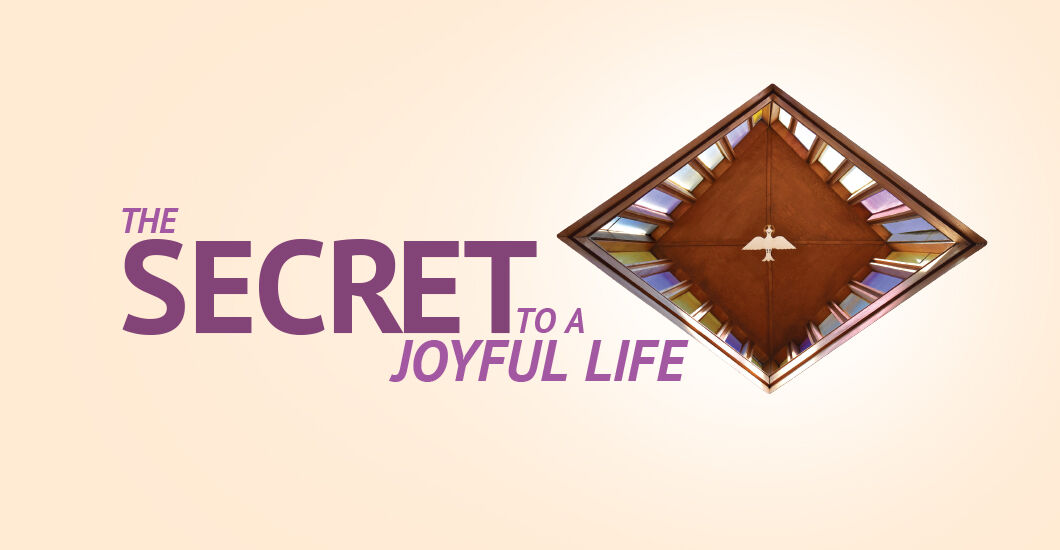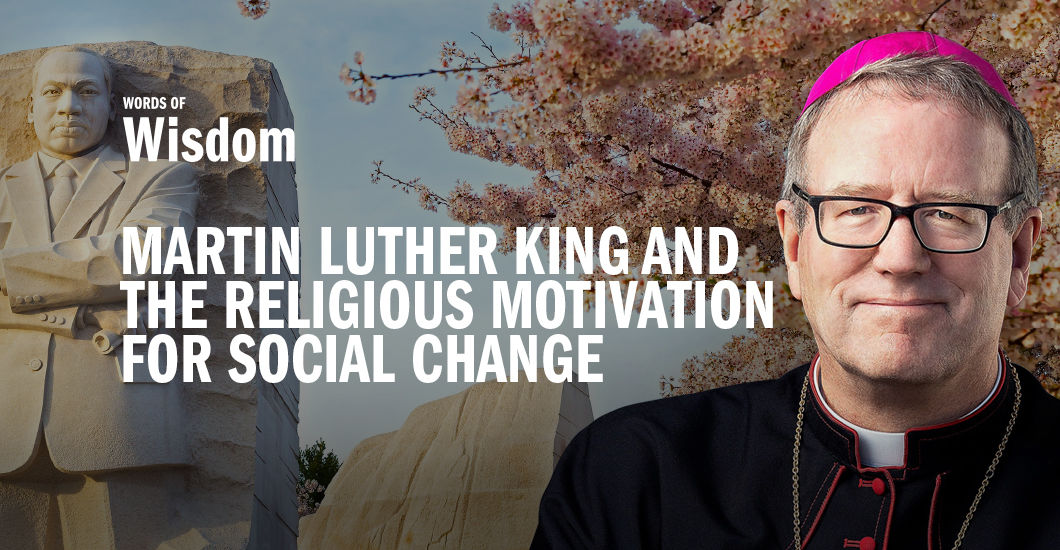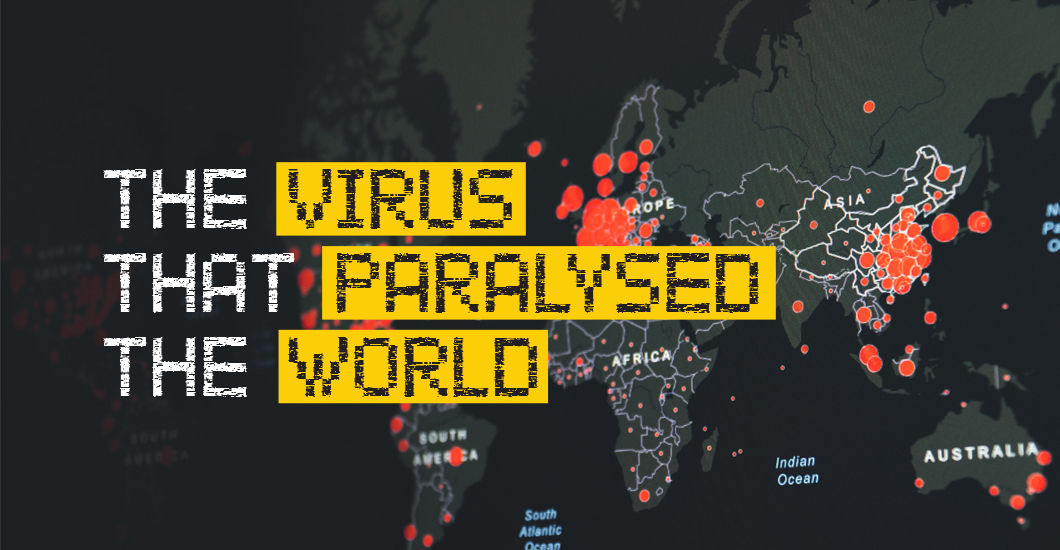Trending Articles
Lessons of a Sycamore Tree
Twists and Turns
Every morning for nearly 14 years, I have opened my kitchen blinds and watched a group of sycamore trees behind our property grow. Sycamore trees are common in California and the developer of this area planted a variety named London Plane, not indigenous to Sacramento County. This variety grows fast and very tall; at full height, they can top out at more than 130 feet! Although they thrive well in the hot dry summers of the Sacramento area, they need full sun to grow to such majestic heights. They will bend and twist to find the sun, which in turn can give them interesting shapes.
One of these sycamore trees had a rocky start when, only a few years old, it became badly infested with aphids. That weakened the trunk, making it droop to nearly a 90-degree angle. It could no longer seek the sun and looked like it was going to be removed. Fortunately, a local arborist—through pruning, nourishment and time— was able to save the little tree. It recovered yet had to twist to reorient itself for its upward journey to the sun. The misshapen tree is still angled quite a bit but if one can say they love a tree, I have to say it: I love this tree! This tree has a story and its very shape reflects my story and perhaps yours as well.
I am a “Cradle Catholic” born of Cradle Catholics. Having strong Catholic roots, I grew on a solid sacramental journey through my Catholic school years. The catechism of my parents’ generation seemed to focus on the “dos and don’ts” of the church but the “whys and wherefores” also intrigued my young questioning mind. At some point, when my questions could not be answered to satisfaction, I was told to “take it on faith.” It sounded like loving Catholic advice but to a growing inquisitive child, who did not quite understand the concept of faith, it equated to: “I don’t know,” “ Because I said so” or “Don’t bother me.” Those words planted within me small seeds of doubt.
Those seeds grew and weakened the faith I had, much like what the aphids did to the tree. Thus, throughout my young adult years I tested, stretched and ignored many of God’s and the church’s teachings. This led to sinful thoughts and behaviors that ultimately ended in painful consequences. My journey toward Christ had become weighed down by sin, and I had bent so far that I was no longer actively seeking the Son.
God loved me mercifully and unconditionally. Even though I had stopped seeking Him, He never stopped seeking me. “For thus says the Lord GOD, ‘Behold, I Myself will search for My sheep and seek them out. I will seek the lost, bring back the scattered, bind up the broken and strengthen the sick’” (Ezekiel 34:11, 16).
To Be or Not To Be
The years passed, I married young and had three sons before I was 30. We baptized our children and tried to make it to mass when we were not too tired or could not rationalize our way out of it. Although I was not actively seeking God, the roots were still strong enough to at least consider God as a sort of good insurance plan, sort of like a “get-out-of-hell-free” card.
In my early 30s, I questioned whether it was worth the effort of taking our kids to church. Our boys could be rambunctious and noisy. Sundays felt more frustrating than fulfilling. When I wearily fed, bathed and dressed the boys in their Sunday best, I weighed the pros and cons of such a decision. Thankfully, one Sunday forever changed my life. I packed bottles, snacks, books, toys, blankies and diapers, then our little family dutifully headed to mass.
For some odd reason, that Sunday I chose to sit in the front row. We never sat in the front. It only meant a longer walk of shame to the back of the church if one of the boys acted up. In retrospect, God had a hand in that decision. I had rationalized that perhaps they might behave if they could see what was happening on the altar. I surveyed their behavior after the Gospel … so far so good. The thought popped in my head, “Hey, I might actually get to listen to a homily for a change.” The priest began speaking on the topic of faith, which immediately caught and held my attention because its concept still felt elusive to me. Then he spoke words that pierced my heart. He said that faith is not a RIGHT. Faith is a GIFT. It is a grace given by God and we just need to ask for it. WHAT?
A Gift for All
I thought being a Cradle Catholic meant faith came with the insurance plan and I just did not understand the policy. I had a swirling mixture of emotions. I was mad that I had not been told this before. I was sad that it had taken so long to hear this information. Yet, I was glad and grateful that it was just as simple as asking for it! Boldly, then and there, I prayed. “God, if faith is a gift and all I have to do is ask for it, then I want it. I want the gift of faith. I want all of it and I want it now! I’ve lost my way. The weight of my sins is too heavy for me and I need faith so I can find my way back to You.” I sat there waiting. Nothing obvious happened, but somehow just asking brought me peace. Maybe I would keep coming to mass.
God works in His timing and although I did not immediately recognize what was happening, He began to bring His own arborists into my life. Through pruning, nourishment, time and love, He introduced me to people whose faith was strong and healthy. They in turn introduced me to God through their words and actions. Eventually, they introduced me to God’s word and that is when the real healing began. I started to read the Holy Bible daily and continued to ask questions. Faith comes from what is heard and what is heard comes through the word of Christ (Romans 10:17). Every day I grew in a faith that led me back to the sacrament of reconciliation.
Like the little sycamore tree, I had to twist my thoughts and actions to reorient them toward Jesus. My life straightened out when I actively began to seek Him and the weight of sin no longer bent me away from His Son. I am still a work in progress needing God’s grace to grow upward. When I recently closed my kitchen blind, I noticed something for the first time; the sun was shining through the leaves and branches of that twisted little tree and the light it cast was interesting and beautiful. That became my simple prayer: May the Son cast His light through me to shine beautifully every day. Amen.

Teresa Ann Weider serves the Church remarkably through her active involvement in various ministries over the years. She lives with her family in Folsom, California, USA.
Related Articles
The Mexican Revolution which began in the early 1920s, led to the persecution of the Catholic community in that country. Pedro de Jesus Maldonado-Lucero was a seminarian at that time. Once he became a priest, despite the risk, he stood with his people. He tended to his flock during a terrible epidemic, founded new apostolic groups, reestablished associations, and ignited Eucharistic piety among his parishioners. Upon discovering his pastoral activities, the government deported him, but he managed to return and continue serving his flock, in hiding. One day, after hearing the confessions of the faithful, a gang of armed men busted his hiding place. Father Maldonado managed to grab a reliquary with Consecrated Hosts as they forced him out. The men forced him to walk barefoot throughout the town, as a crowd of the faithful followed him. The city mayor grabbed Father Maldonado's hair and dragged him toward the city hall. He was knocked to the ground, resulting in a skull fracture that popped out his left eye. He had managed to keep his grip on the pyx until this time, but now it fell out of his hands. One of the thugs took some Holy Hosts, and as he forcefully stuffed the hosts inside the priest’s mouth, he shouted: “Eat this and see if He can save you now.” Little did the soldier know that just the night before, during the Holy Hour, Father Maldonado had prayed that he would happily give his life for an end to the persecution ‘if only he would be allowed to take Communion before his death.’ The thugs left him for dead in a pool of his own blood. Some local women found him still breathing and rushed him to a nearby hospital. Father Pedro Maldonado was born into eternal life the next day, on the 19th anniversary of his priestly ordination. Pope John Paul II canonized this Mexican priest in 2000.
By: Shalom Tidings
MoreWhatever the situation you are going through, God will make a way where there seems to be no way… Today, my son Aaric brought home his dictation book. He got a red star with a ‘good’ remark. This might not be a big deal for a kindergartener, but for us, it is a celebrated achievement. The first week of school, I got a call from his class teacher. We dreaded this call, my husband and I. As I tried hard to explain his communication skills (or lack thereof) to his teacher, I remember confessing that while I cared for his big sister with special needs, I had fallen into this pattern of doing things without being asked. As she could not utter a single word, I had to guess her needs. The same mode was turned on for Aaric, too, in his early days. Even before he asked for water, I would give it to him. We had a bond that didn’t need words, a language of love, or so I thought. How miserably wrong I was! Not much later, when his little brother Abram turned three months old, I had to take those heavy steps again to see the counselor at school. This time, it was about Aaric’s poor writing skills. His dear class teacher panicked when she saw him drop his pencil on the table and stubbornly fold his hands as if to say: “I won’t write.” We dreaded this, too. His little sister Aksha was an expert at scribbling at the age of two, but Aaric wouldn’t even hold the pencil. He just didn’t fancy it. The First Step After receiving instructions from the counselor, I visited the principal, who insisted that we undergo a thorough assessment if his communication continues to be weak. I couldn’t even think of that back then. For us, he was a miracle baby. After what we went through with our firstborn and three miscarriages, Aaric had defied all odds. He was born full-term, unlike what the doctors had predicted. His vitals were normal at birth. “He’s a big baby!” exclaimed the doctor on bringing him out through a C-section. We watched him grow step by step with almost bated breath, praying nothing would go wrong. Aaric soon reached all his milestones. However, when he was just one year old, my father mentioned that he may need speech therapy. I brushed it off as being too early to diagnose. The truth was, I didn’t have the strength to face another problem. We were already worn out with all that our firstborn was going through. Anna was born preterm at 27 weeks. After many grueling days in the NICU, she was diagnosed with severe brain damage at three months and had epileptic seizures. After all the treatments and medications, our now 9-year-old daughter still battles with cerebral palsy and intellectual disability. She is unable to sit up, walk, or talk. Countless Blessings There’s a limit to holding off the inevitable, so six months ago, we reluctantly took Aaric to get an initial assessment. The ADHD diagnosis was hard. We struggled to accept it, but we still put him through speech therapy. At this point, he was only stuttering a few words. A few days back, I mustered the courage to go to the hospital with Aaric and get a full, thorough assessment. Mild autism was what they said. As we were going through the process of assessment, several questions were asked. To my surprise, my response to most of these questions was: “He wasn’t able to, but now he can.” Praise God! By the power of the Holy Spirit living in him, everything is possible. I believe that praying and blessing him every day before going to school has made a difference. The change was radical when he began to memorize Bible verses. And the beauty is that he recites those verses just when I need them. Indeed, the Word of God is living and active. I believe the transformation is ongoing. Whenever I feel low, God surprises me by making him say a new word. Amid the tantrums he puts up, and when everything seems to crumble down, my little girl, three-year-old Aksha, simply comes up and gives me a hug and a kiss. She really knows how to comfort her mama. I believe that God will surely intervene and heal our eldest daughter, Anna, too, for nothing is impossible for Him. Change is already visible—the number of times she goes into epileptic seizures has gone down tremendously. In our walk of life, things may not be going as expected, but God never leaves nor forsakes us. Just like oxygen that is essential yet invisible, God is ever present and provides the life we need so badly. Let us cling to Him and not doubt whilst in the darkness. May our testimony reveal the truth of how beautiful, wonderful, and loving our God is and how He transforms us to say: “I was …, but now I am ….”
By: Reshma Thomas
MoreLife is full of unexpected turns. Nearly six years after the death of her mother, Bernadette had to suffer the loss of her father too. Since leaving Lourdes to join the religious order, she never had a chance to see him. When assailed by this sudden demise, this is how Bernadette found strength—A sister found her crying in front of a statue of the Virgin Mary, and when the sister tried to console her, she said: “My sister, always have great devotion to the agony of our Savior. Last Saturday in the afternoon, I prayed to Jesus in agony for all those who would die in that moment, and it was precisely the very moment my father entered eternity. What a consolation it is for me to have helped him.” For Bernadette, the Saint who, as a little girl, had the apparition of Mary at Lourdes, life was not without troubles. She had to go through many tribulations; big and small humiliations bombarded her. She often said: “When my emotions are too strong, I remember the words of Our Lord: 'It is I, don’t be afraid.' I immediately appreciate and thank Our Lord for this grace of rejection and humiliation from those in authority. It is the love of this Good Master who would remove the roots from this tree of pride. The more little I become, the more I grow in the Heart of Jesus.”
By: Shalom Tidings
MoreI was going through my old prayer journal, wherein I had written prayer requests. To my amazement, every single one of them was answered! Anyone taking a cursory look at the news these days may find themselves despairing, wondering where God is, and needing hope. I know I have found myself in this position on certain days. We feel out of control, and we wonder what we can do about all of the horrible things we see. I want to share with you a story. A few years ago, I started keeping a journal of prayer requests of the people and things I was praying for. I often prayed a Rosary for these things, as I still do today for prayer petitions. One day, I came across an old journal of my written prayer requests. I began to peruse the pages of what I had written long ago. I was astounded. Each prayer had been answered—maybe not always in ways I thought they would be answered, but they were answered. These were no small prayers. “Dear Lord, please help my aunt stop drinking alcohol. Dear Lord, please help my infertile friend have children. Dear Lord, please heal my friend from cancer.” As I scrolled down the page, I realized that every single prayer had been answered. Many in a bigger and better way than I imagined. There were a couple that, at first glance, I thought had not been answered. One friend who needed healing from cancer had passed away, but then I remembered that she had confession and anointing of the sick before she died. She died peacefully in the mercy of God, surrounded by His healing grace. But other than that, the majority of the prayers were answered here in this world. Many prayer requests had seemed like impossible mountains, but they had been moved. God’s grace takes our prayers and our perseverance in prayer, and He moves all things toward good. In the quiet of my prayer, I heard a whisper: “I have been working all these things throughout time. I have been writing these stories. Trust me.” I believe we are in perilous times. But I also believe that we are made for these times. You may say to me: “Your personal prayer requests being answered seems great, but nations are at war.” And my response to that is, again, nothing is impossible with God, not even stopping war by using our prayers. I remember it happening in the past. We should believe that God can act that big right now. For those not old enough to remember, there was a scary time when it looked like a blood bath was coming. But through the power of the Rosary, things changed. I was in 8th grade, and I remember hearing about all the turmoil in the Philippines. Ferdinand Marcos was the dictator of that country at the time. It was shaping up to become a bloody battle with a few people already dead. A staunch critic of Marcos, Benigno Aquino, was assassinated. But it didn’t become a bloody battle. Cardinal Jaime Sin of Manila had asked people to pray. They went out in front of the military, praying the Rosary aloud. They stood in front of tanks praying. And then, a miraculous thing happened. The military laid down their weapons. Even the secular media, the Chicago Tribune, reported how “Guns fell to Rosaries.” The revolution was over, and the glory of God was seen. Don’t stop believing in miracles. Expect them. And pray the Rosary every chance you get. Lord knows our world needs it.
By: Susan Skinner
MoreAt the age of six, a little girl decided she did not like the words ‘prison’ and ‘hanged’. Little did she know that at the age of 36, she would be walking with death-row prisoners. In 1981, the shocking murders of two young children became front-page news in Singapore and around the world. Investigation led to the arrest of Adrian Lim, a medium who had sexually abused, extorted, and controlled a string of clients by fooling them into believing that he had supernatural powers, torturing them with electro-shock ‘therapy.’ One of them, Catherine, had been a student of mine who had gone to him to be treated for depression after her grandmother’s death. He had prostituted her and abused her siblings. When I heard that she was charged with participating in the murders, I sent her a letter and a beautiful picture of the Sacred Heart of Jesus. Six months later, she wrote back, asking, “How can you love me when I have done such bad things?” For the next seven years, I visited Catherine weekly in prison. After months of praying together, she wanted to ask forgiveness from God and all the people that she had hurt. After she had confessed her sins, she had such peace, she was like a different person. When I witnessed her conversion, I was beside myself with joy, but my ministry to prisoners was just beginning! Tracing Back I grew up in a loving Catholic family with 10 children. Every morning, we would all go to Mass together, and my mother would reward us with breakfast in a coffee shop near the church. But after a while, it stopped being about food for the body and became solely about nourishment for the soul. I can trace my love for the Eucharist to those early morning Masses with my family where the seed of my vocation was sown. My father made every one of us feel especially loved, and we never failed to run joyfully into his arms on his return from work. During the war, when we had to flee Singapore, he would home-school us. He’d teach us phonetics every morning, asking us to repeat a passage in which someone was sentenced to death at Sing Sing prison. At the tender age of six, I already knew that I didn’t like that passage. When it was my turn, instead of reading it, I recited the Hail Holy Queen. Little did I know that I would one day be praying with prisoners. It’s Never Too Late When I began visiting Catherine in prison, several other prisoners showed interest in what we were doing. Whenever a prisoner requested a visit, I was glad to meet with them and share God’s loving mercy. God is a loving Father who is always waiting for us to repent and turn back to Him. A prisoner who has broken the law is similar to the Prodigal Son, who came to his senses when he reached rock bottom and realized, “I can go back to my Father.” When he returned to his Father, asking for forgiveness, the Father came running out to welcome him back. It is never too late for anyone to repent of their sins and turn back to God. Embracing Love Flor, a Filipino woman accused of murder, learned about our ministry from other prisoners, so I visited her and supported her as she appealed her death sentence. After the rejection of her appeal, she was very angry with God and wanted nothing to do with me. When I passed her door, I would tell her that God still loved her no matter what, but she sat in despair staring at the blank wall. I asked my prayer group to pray the Novena to Our Lady of Perpetual Succour and offer their sufferings specifically for her. Two weeks later, Flor had a sudden change of heart and asked me to come back with a priest. She was bubbling over joy because Mother Mary had visited her cell, telling her not to be afraid because she would stay with her until the end. From that moment, until the day of her death, there was only joy in her heart. Another memorable inmate was an Australian man who was imprisoned for drug trafficking. When he heard me singing a hymn to Our Lady to another prisoner, he was so touched that he asked me to visit him regularly. His mother even stayed with us when she came to visit from Australia. Eventually, he also asked to be baptized as a Catholic. From that day on, he was full of joy, even as he walked to the gallows. The superintendent there was a young man, and as this former drug dealer walked to his death, this officer came forward and embraced him. It was so unusual, and we felt it was like the Lord Himself embracing this young man. You just can’t help but feel God's presence there. In fact, I know that every time, Mother Mary and Jesus are there to receive them into heaven. It has been a joy for me to truly believe that the Lord who called me has been faithful to me. The joy of living for Him and for His people has been far more rewarding than anything else.
By: Sister M. Gerard Fernandez RGS
More“All we like sheep have gone astray; we have all turned to our own way…” (Isaiah 53:6) My current car has a lane departure warning system. Every time I stray out of my designated lane while driving, the car gives me a warning signal. This was annoying at first, but now I appreciate it. My old car did not have such advanced technology. I had not realized how often I drifted out of bounds while driving. Over the past few months, I have started participating in the Sacrament of reconciliation (Confession). For decades, I had ignored this practice. I felt like it was a waste of time. I thought to myself: Why does a person need to confess his sins to a priest when they can speak directly to God? Examining your conscience regularly is uncomfortable. Admitting your sins, out loud, is humiliating. But the alternative is even worse. It’s like refusing to look in a mirror for years. You may have all sorts of stuff stuck on your face, but you go about under the false impression that you look fine. These days, I try to go to Confession weekly. I take time for self-reflection and the examination of my conscience. I have noticed a change within me. Now, as I go through each day, my internal warning system has been reactivated. Every time I stray off the path of goodness by aimless striving and endless pursuits, my conscience gives me a signal. This allows me to get back on course before I wander too far into the danger zone. “For you were going astray like sheep, but now you have returned to the shepherd and guardian of your souls.” (1 Peter 2:25) The Sacrament of reconciliation is a gift that I disregarded for too long. I was like a sheep who had wandered away. But now I have turned to my Shepherd, the Guardian of my soul. He checks my spirit when I stray. He redirects me onto the path of goodness and safety.
By: Nisha Peters
MoreWhat is the way out of fear, anxiety, and depression? Christians believe that God is three in One. We profess faith in God the Father, God the Son, and God the Holy Spirit. Behaviorally, however, we place our emphasis on the first two Persons of the Trinity—we pray the Our Father and believe He sent His Son, Jesus, for our salvation. And, while we recognize that the Holy Spirit is the divine “Lord and giver of Life,” we tend to forget the Spirit and don’t give Him the opportunity to give us Life! Let’s revisit the story of Pentecost and rediscover how the Holy Spirit can be the “Lord and giver of life” for us, because without the Spirit, our faith becomes a barren, joyless moralism. The second chapter of Acts (vs. 1-11) describes the Apostles’ encounter with the Holy Spirit and how they behaved afterwards. Following fifty days of uncertainty, something big is about to happen. Jesus had entrusted His Mission to the Apostles the previous week, but are they ready to proclaim the risen Lord? Can they set aside their doubts and fears? The coming of the Holy Spirit changes everything. The disciples are no longer afraid. Before, they feared for their lives; now, they are ready to preach the Good News to all the nations with a zeal that cannot be suppressed. The Holy Spirit neither takes away all their difficulties nor the opposition of the religious establishment. But the Spirit endows them with a dynamism that enables them to proclaim the Good News to the ends of the earth. How did this happen? The lives of the Apostles needed to be radically changed, and the gift of the Spirit is how that change occurred. In the Spirit, they encountered the third person of the Trinity—a real person, not just a force, but a person with whom we can be in relationship. While we know the Father as Creator, and the Son as Redeemer, we come to know the Spirit as Sanctifier, the one who makes us holy. It is the Holy Spirit that makes Jesus live within us. While Jesus is no longer physically present among us, He remains within us through the Holy Spirit. And that Spirit brings peace—a peace that does not free us from problems and hardships, but enables us in our problems to find peace, to persevere, and to hope because we know we are not alone! Faith is not a problem-solving enterprise: when one problem goes away, another takes its place. But faith assures us that God is with us in our struggles, and that the love of God and the peace Jesus promised are ours for the asking. In today’s frenzied world, super-charged by social media and our digital devices, we find ourselves pulled in a thousand directions, and sometimes we get burned out. Then we look for the quick fix, sometimes resorting to self-medication through alcohol or pill-popping, or one hedonistic thrill after another. During such restlessness, Jesus enters our lives through the Holy Spirit and says, “Peace be with you!” Jesus throws us an anchor of hope. As Saint Paul says in his letter to the Romans, the Spirit keeps us from falling back into fear, for He makes us realize that we are beloved children of our heavenly Father (Romans 8:15). The Holy Spirit is the Consoler, who brings the tender love of God into our hearts. Without the Spirit, our Catholic life unravels. Without the Spirit, Jesus is little more than an interesting historical figure, but with the Holy Spirit He is the risen Christ, a powerful, living presence in our lives here and now. Without the Spirit, Scripture is a dead document. But, with the Spirit, the Bible becomes the living Word of God, a word of life. The living God speaks to us and renews us through His Word. Christianity without the Spirit is joyless moralism; with the Spirit, our faith is life itself—a life we can live and share with others. How can we invite the Holy Spirit into our hearts and souls? One way is by reciting a simple prayer: “Veni Sancte Spiritus” (“Come, Holy Spirit”). Another way to deepen your relationship with the Holy Spirit is to reflect upon the seven Gifts of the Holy Spirit, which we receive at Confirmation. Find a commentary on wisdom, understanding, counsel, fortitude, knowledge, piety, and fear of the Lord, and strive to integrate these gifts into your everyday life. A good way to know if you are living the gifts of the Spirit is to ask yourself if your life manifests the fruits of the Holy Spirit (found in Paul’s letter to the Galatians [5:22-23]). If love, joy, peace, patience, kindness, goodness, faithfulness, gentleness, and self-control are present in your life, then you know the Holy Spirit is at work! Prayer: Come Holy Spirit, fill the hearts of your faithful and kindle in us the fire of your divine love! Endow us with your gifts and make our lives fertile ground that produces an abundance of love, joy, peace, patience, kindness, goodness, faithfulness, gentleness, and self-control. AMEN.
By: Deacon Jim McFadden
MoreA principal reason why the civil rights movement of the 1950s and 1960s was so successful, both morally and practically, was that it was led largely by people with a strong religious sensibility. The most notable of these leaders was, of course, Martin Luther King. To appreciate the subtle play between King’s religious commitment and his practical work, I would draw your attention to two texts—namely, his Letter from the Birmingham City Jail and his “I Have a Dream” speech, both from 1963. While imprisoned in Birmingham for leading a nonviolent protest, King responded to certain of his fellow Christian ministers who had criticized him for going too fast, expecting social change to happen overnight. The Baptist minister answered his critics in a perhaps surprising manner, invoking the aid of a medieval Catholic theologian. King drew their attention to the reflections of St. Thomas Aquinas on law, specifically Thomas’ theory that positive law finds its justification in relation to the natural law, which finds its justification in relation to the eternal law. Aquinas means that what makes a practical, everyday law righteous is that it somehow gives expression to the principles of the moral law, which in turn are reflective of God’s own mind. Therefore, King concluded, unjust positive laws, such as the Jim Crow regulations that he was contesting, are not just bad laws; they are immoral and finally offensive to God. Here is King’s own language: “One may well ask: ‘How can you advocate breaking some laws and obeying others?’ The answer lies in the fact that there are two types of laws: just and unjust. I would be the first to advocate obeying just laws. One has not only a legal but a moral responsibility to obey just laws.” But then King contrasts this with obedience to an unjust law: “Conversely, one has a moral responsibility to disobey unjust laws. I would agree with St. Augustine that ‘an unjust law is no law at all.’” And in clarifying the difference, he turns to Aquinas: “Now, what is the difference between the two? How does one determine whether a law is just or unjust? A just law is a manmade code that squares with the moral law or the law of God. An unjust law is a code that is out of harmony with the moral law. To put it in the terms of St. Thomas Aquinas: An unjust law is a human law that is not rooted in eternal law and natural law.” This is not pious boilerplate; rather, it reveals what gave King’s movement its justification and purpose. The very same dynamic was on display six months later, when King addressed the throng who had gathered at the Lincoln Memorial for the March on Washington. He was not giving a sermon. He was making a political speech, advocating in the public place for social change. But attend to some of the language that he used: “I have a dream that one day every valley shall be exalted, and every hill and mountain shall be made low, the rough places will be made plain, and the crooked places will be made straight; ‘and the glory of the Lord shall be revealed and all flesh shall see it together.’” He was directly relating the social revolution he was advocating to the mystical vision of the prophet Isaiah. And listen to the magnificent conclusion of the address in which he artfully blends the lyrics of an American patriotic song to the lyrics of a song he and his family sang in church: “And when this happens, and when we allow freedom ring, when we let it ring from every village and every hamlet, from every state and every city, we will be able to speed up that day when all of God’s children, black men and white men, Jews and Gentiles, Protestants and Catholics, will be able to join hands and sing in the words of the old Negro spiritual: Free at last! Free at last! Thank God Almighty, we are free at last!” Once again, on King’s reading, the political nests within the moral, which nests within the sacred. Martin Luther King derived from his religious heritage not only the metaphysics that informed his social activism, but also the nonviolent method that he employed. What Jesus reveals in the rhetoric of the Sermon on the Mount (“Love your enemies”; “Bless those who curse you, pray for those who maltreat you”; “If someone strikes you on the right cheek, turn and give him the other”; etc.) and even more strikingly in his word of forgiveness from the cross is that God’s way is the way of peace, nonviolence, and compassion. As a Christian, King knew in his bones that reacting to oppression with violence would only exacerbate the tensions within society. He sums up this principle in one of his best-known sermons: “Returning hate for hate multiplies hate, adding deeper darkness to a night already devoid of stars. Darkness cannot drive out darkness; only light can do that. Hate cannot drive out hate; only love can do that.” Within the confines of this brief article, I cannot begin adequately to address the social upheaval occurring in our culture today. But I will say simply this: it is indisputably clear that there are severe moral deficits in our society that must be addressed, but the best way to do so is from within a moral and finally religious framework. May Martin Luther King’s model of leadership in this regard be a lodestar.
By: Bishop Robert Barron
MoreHappiness is a ring on your finger Have you ever wondered why the finger next to the pinkie is traditionally the one with the wedding ring? The Chinese came up with this explanation. Let’s try a simple exercise. Join your hands in prayer with the fingers pointing up. Now move your palms with the fingertips still touching each other. Bend both middle fingers downward so that the tips of these fingers are now pointing down and the backs of both fingers are touching. Allow the hands to remain in this position, then try pulling back the thumbs and allowing them to touch again. This is quite easy. The thumbs represent your relationship with your parents. In your childhood, you live with them and important decisions can’t be made without them, but at some point in life, you usually start making decisions on your own and move out. You separate physically from them. Now, try the same motion for the index finger. Notice that it is also easy to do this with your index and pinkie fingers, which represent siblings and children. You will not be living with your siblings or your children all your life. Finally, try to move the ring fingers, which represent you and your spouse. It is impossible unless you separate the middle fingers. So, what do the middle fingers bent downward represent? - The sacrament of Matrimony. When a man and a woman make vows of commitment to each other until death, they are bonded by God into a one flesh union, as husband and wife. If the middle fingers are separated it is easy to pull the ring fingers away from each other. So, spouses can only be separated by death, or by breaking their covenant with God and each other. Today, we see a lot of confusion about the meaning, value and purpose of marriage and an increase in broken families. Tension between spouses is amplified by the modern world’s exclusion of God from relationships. When marriage is about personal fulfillment, people become preoccupied by the flaws, shortcomings and failures of their spouses and of others. Perhaps this is why Pope St John Paul II, anticipating this degeneration of modern society, exhorted the people of Australia, “As the family goes, so goes the nation and so goes the whole world in which we live. Do not be afraid to take a chance on Peace – to teach Peace, to live Peace… Love between man and woman cannot be built without sacrifices and self-denial.” When they fail to do this, we have chaos in the family and chaos in the world. He also reminded the people of the United States that “Freedom consists not in doing what we like, but in having the right to do what we ought.” Protect each other When the woman caught in adultery was brought before Jesus(Jn 8: 3-11), those who condemned her dragged her into the middle of the crowd to expose her shame and humiliate her publicly. Jesus unexpectedly responded by unmasking their own sinfulness, instead of embarrassing her further. When the crowd melted away in reaction to his challenge, He (the only sinless one among them) forgave her and encouraged her not to sin again. When we contemplate the Bible’s description of St Joseph’s treatment of women, we see the same compassionate behaviour. When he was told that Mary was with child, Joseph was unwilling to expose her to shame. Jesus and Joseph both followed the same action plan. The woman before them should not be publicly shamed, but treated with respect and kindness. My wife and I are not perfect. We both have our share of weaknesses. When I became her husband, I received a special grace to be her champion, so that her deficiencies, faults and failures are not exposed to anyone, even close family members. When I, as a husband, fail to fulfill this mission, then an attitude of disapproval poisons our family life and needs to be remedied. Even before our marriage, we had often spoken about this. Both of us had seen plenty of examples, among our family and friends, of a husband or wife badmouthing the other at social events. Recently my wife pointed out an opposite example. We had known this couple for a long time, but recently, when my wife interacted more closely with the wife, she noticed weaknesses in her character. My wife told me something that made me seriously consider my own attitude in this area. She said that in all the years we had known and interacted with this couple, her weaknesses had never been exposed because her husband shielded her so well. Unquenchable Fire “Be who God meant you to be and you will set the world on fire” (St Catherine of Siena). Becoming the person God meant you to be is not easy or quick to achieve. Short-term sacrifices won’t keep the fire blazing. In the early stages of my marriage, I was motivated to go out of my way to serve my wife. I did this with sincerity, but also some discomfort as I stretched myself to meet her needs. However, I became inordinately proud of myself for doing so. Those affectionate courtesies that dominated the early phase of my marriage began to diminish because I started to feel that I had done enough to earn the respect I desired. Then I realized that a few considerate actions, were not going to convert anyone in my family, because my intentions were self-centred. If I wanted to lead my wife and kids to Heaven, I needed to engage in a lifetime of self-sacrificial actions. Marriage isn’t a contract where each of the partners gives 50% and gets 50%. It is a covenant relationship where each of the spouses gives 100% of what they have to give and receives the wholehearted support of their spouse. As Pope St John Paul II put it so well, “Love consists of a commitment which limits one’s freedom. It is a giving of the self, and to give oneself means just that: to limit one’s freedom on behalf of another.” (Love and Responsibility). So, I began to treat my wife and children as if I were hosting the Holy Family in my home as honoured guests. Sometimes my actions aren’t noticed or appreciated, but the Holy Family never fails me. They taught me true joy and I have never had more refreshing sleep. The next day I get up and do it all over again, not relying on my own strength but by depending on the Lord’s mighty power. I believe family life is strangled by service that is limited and calculated. However, service that costs us something - that is sacrificial - invigorates and inspires reciprocal loving service. This is the path to sainthood. Lord Jesus, help me to contemplate The Holy Family. In this age, when the attack on the family is so fierce, help me to spend more time in prayer with the Holy Family so that I may care better for my loved ones. Help me to unselfishly grow in holiness so that I may lead my family to encounter your unfailing love and mercy. Amen. Jesus, Mary and Joseph, protect our families.
By: Jenson Joseph
MoreThe coronavirus is indeed causing havoc in the world today; but is there a virus deadlier than this? As I write this, almost the whole world is in the grips of the virus that has paralysed mankind. Who would have thought that in this age of advanced technology, with daily scientific discoveries, we could be taken by surprise? Or that, while mankind has ventured to nearby planets, our plans for our lives and our future together on earth could be so dampened that we will be forced to live an inferior lifestyle, very different to what we are used to? 2020 has barely begun, but Australia (where I live) has already suffered several disastrous events, culminating in the current crisis. The year began with catastrophic bushfires which burned massive tracts of land, killed numerous people and animals and destroyed many, many homes and properties. Smoke darkened our skies, intruded into our homes and even interfered with sporting fixtures. Just as we were starting to recover from that, extensive storms and heavy rain struck, pelting some places with huge hailstones and causing flash floods. Just when we thought we can now move on; the Coronavirus has invaded our lives. Now, we are all enduring the stifling restrictions which are crippling our economies, our communities, our education and our access to the sacraments. Mankind is afraid and though many still show a brave face, we are all aware that some of us may not see tomorrow. Currently much of the world is in a war-like situation. Some people are fighting for toilet rolls, stockpiling food for months and cutting off all physical contact. All public places except essential services are closed and New York - the centre of international business - is now under the supervision of the National guard. This is an extraordinarily difficult time for leaders of all nations as they venture into uncharted territories. A few of them have even contracted the virus themselves. The virus, and all the restrictions it has caused, can only damage us physically and psychologically. Scripture teaches us that the body is the temple of the Holy Spirit, so we must protect and care for it, but Jesus reminded us not to fear what can only kill the body. Our souls are invaluable in God’s sight and it lives forever. Jesus came into a world focused on the physical life and material things to show us that the spiritual life is more important than anything else. The flesh must pass away, but the soul will live on eternally. The real virus that has paralysed mankind today is SIN. No other virus has ever caused greater damage than the virus of SIN that has crippled and degenerated us so much that many are already living dead, empty lives, fulfilling no other purpose than to entertain themselves. Sin has distanced us from God, darkened our minds, hardened our hearts, dulled our ears, blinded our eyes and sickened our souls. This is far more terrible than being unable to move around freely doing what we like. We could face an eternity separated from all that is good, unless we change our ways. Jesus took up the burden of sins of all mankind and died for all of us, so we could live with Him forever. So, we need not fear death if we accept His salvation and follow Him daily. We will all die one day and because of our hope in Jesus, we can rejoice as death approaches. So if you are a Christian, this is the time to showcase our faith, to be fearless, trusting in the life that Jesus has already offered and prepared for us. This is the time as the church teaches, to receive spiritual communion. The heart of a Christian would be full of joy in this time since nothing can separate us from the love of Christ. And any sickness especially leading to death is a time of great rejoicing for such a person. As St Paul says, “For to me to live is Christ and to die is gain” Philippians 1:21. We must now, without fail, pray for mercy and forgiveness on behalf of our brothers and sisters who do not know Him and haven’t accepted HIM as their Lord and Saviour and are unaware of the joy of that relationship. We must also do whatever is possible to help those around us as inspired by the Holy Spirit. For those who only follow a tradition by going to church every Sunday and do not really share a relationship with God, this is your time to look deep within your heart where Christ awaits you. This is where HE always desired to meet you. Instead of filling the free time with empty things during this shutdown, seize the opportunity to spend time in silence, read the Bible and allow HIS word to take flesh in your life. There is no better time than this to forgive and to ask forgiveness from those whom we have offended. For those who are still following other man-made religions/ways of life (receiving some sort of temporal satisfaction), Jesus declares that HE is the truth, the way and the life. This means that if you are really searching for the truth, all roads will lead you to Jesus Christ alone. Are you searching for the truth or are you settling for breadcrumbs falling off the table? For those who are depending only on their good works or those who are following nothing at all, this is your time to reflect on your inner life and give your souls and hearts to Jesus and be saved. “Taste and see that the Lord is good” Psalm 34:8. Let’s prepare ourselves for our last day that will come at an hour we do not expect. It may be when Jesus will return in glory to gather all those who love and follow Him. Or it may be at any moment before that. Chris Hadfield, the first Canadian to walk in space states that astronauts do not go into space with their fingers crossed and that the more you know, the less you fear. In other words, the less you know, the more you fear. I encourage you to know Jesus Christ, the Son of God, for to know him is to know the truth (John 8:32) and to have eternal life (John 17:3). Let us recognise that the real virus that afflicts us is Sin. Let us allow Jesus to take over our lives, deliver us from sin and lead us to eternal life.
By: Cyril Abraham
MoreLatest Articles
Do you know how to battle the storm that obstructs your way? We all want control and we all want freedom. We want to be able to grasp the course of our lives. It is easy to fall into the trap of desiring this control we can never have. We cannot go back and change the past, and we cannot direct the future exactly as we please. It is also too easy to reduce this desire to a lack of trust in God or a lack of concern for His own will, but often, we may desire this control because we think it will help us serve God best. We get sucked into a cycle of worry because we are trying to please God. But do we stop to see what He has to say about such a thing? Tormenting Past As a university student, I find myself too often worrying about doing everything right. I am actively trying to discern God’s will for my life during such a pivotal time (which, of course, is a good thing), but sometimes to the point that I am too worried if I am failing to properly follow His will or if I am seeking to control and direct my life instead of letting God lead. The irony here is clear retrospectively but can be unnoticeable at the moment. I find myself stressing about the past, wishing I could go back and find answers to the problems I both endured and created. The result is a cycle of painful questions–Why did I say that? Why did this person do this? What does it all mean? Did I learn the right lesson? Why did somebody else get something I wanted? I am always trying to find a solution, trying to take back control, trying to figure out what others are doing right that I am not. But sometimes, all we need to do is let go. Recently, I attended a Sisters of Life* retreat where we learned about imaginative prayer, a spiritual exercise where you use your imagination to place yourself in a scene and let God speak to you. At the same time in my life, I was preparing for training as a sailing instructor, another thing that left me worried as I sought to predict how the course would turn out. Would I succeed? If I didn’t, all my summer plans would be ruined, and I would have no job. What would I do then? What if the other trainees passed and I didn’t? The Bible story my imagination immediately turned to was the story of Jesus calming the storm on the ocean while the disciples were in the boat. I placed myself into the scene. Sailing through the Storm I vividly saw in my mind the boat I had always grown up sailing, the harbor where I spent countless hours practicing, and I saw the storm I had been caught in my first days sailing all those years ago. When the wind is powerful enough, it fills the sails and tilts the sailboat to its side. The skipper must lean back over the side to flatten the boat or release the mainsheet (the rope used to control the sails), all while continuing to clutch the tiller (steering instrument) and direct the boat with just one hand. Fighting currents and fighting wind, it takes all your strength and willpower as the waves are splashing over the side and the wind whips your eyes, bringing you to tears. Fighting to hold onto everything and prevent the boat from flipping over can become an impossible task. It was then, in my prayer, that Jesus began to walk across the water toward me. He reached out His hand for me to grasp. If I reached for His hand, I would have to let go of one of the controls I was using to keep my boat moving. I continued to cling to the mainsheet and the tiller, my hands cramping, the wind tearing my eyes and my hair, leaning back so far that my back nearly touched the water in an impossible gymnastic move. He waited for me. I let go of the rope holding the sail and took His hand. It was then that the pressure on the sail from the wind was released. The boat slowed and flattened until it came to a stop and merely bobbed in the waves, sails flapping in the breeze, with no risk of tipping over. Jesus climbed into the boat. Offer it up Like a patient, loving Father and friend, He directed me when I was ready to take up my course again and keep going now that the pressure and anxiety were released. Sometimes, we don’t have to keep trying to find a solution, fighting to hold everything together, sometimes, all we need to do is let go of the past, our problems and give them to God. Then, we'll just need to take up our course and begin again. After having the time for that prayer, I attended Mass, and the homily confirmed the message placed in my heart. The Gospel was about when Peter asks Jesus what is going to happen to John, and Jesus replies: “What concern is it of yours?” The priest emphasized how Peter’s path was very different from John’s. Jesus not only told Peter not to worry about John but also clarified who he should focus on; He said: "You follow Me.” Peter, of course, went on to be the leader of the Church and now has the most famous basilica in Rome named after him. The week following the retreat, I had my sailing training and not only passed but also was offered a job opportunity for future summers. What was I so worried about? That, along with the other problems and mistakes of the past that I was clinging to, just needed to be let go of to find peace. This does not mean avoiding dealing with problems at all; rather, it allows us to take a step back before returning to the situation, and often, a solution reveals itself. Sometimes, it does mean letting go of problems we cannot solve, like questions about the past or the future. Jesus wants to bear our burdens with us. When we place our trust in Him and leave our worries at the foot of the Cross, solutions are inevitable. *Sisters of Life, based in North America, is a Catholic religious community that follows Augustinian rule and promotes pro-life.
By: Sarah Barry
MoreI’m no longer trapped…I found my way. Living with Complex Post-Traumatic Stress Disorder (CPTSD) is an ongoing journey that has greatly shaped my relationship with God and deepened my faith. For many years, I was tormented by nightly nightmares, a relentless reminder of past traumas that seemed inescapable. My sleep was frequently interrupted by vivid and distressing dreams that left me emotionally drained and spiritually desolate. However, a pivotal moment in my life—my Baptism—marked the beginning of a significant transformation. The nightmares ceased, but my journey of healing was far from over. CPTSD, unlike its more widely recognized counterpart PTSD, arises from prolonged exposure to trauma, often during childhood. There is no cure—just the management of symptoms. This condition manifests in various ways—emotional flashbacks, hypervigilance, chronic feelings of emptiness, amnesia, and an impaired sense of self. For me, these symptoms translated into a constant state of anxiety and a pervasive sense of disconnection from the world around me. Yet, amidst these challenges, I came to see how this condition has made me uniquely aware of my own emotions and deeply empathetic and protective towards the struggles of others. Signs & Symptoms When the nightmares stopped after my Baptism, I felt that a heavy burden had been lifted, and I could finally rest. In fact, the very first words I heard God speak over me immediately after my Baptism was: “I will give you rest.” This miracle was a tangible sign of God's grace and a testament to the power of the sacrament. However, while the most debilitating symptom was alleviated, other symptoms persisted, which I believe were opportunities to draw closer to God. The phrase: "I will give you rest" (Matthew 11:28) is commonly interpreted as an invitation to physical rest, a respite from the demands and labors of daily life. In this context, it resonates with those who are weary and burdened, promising them a moment of peace and tranquillity. However, a deeper exploration of this passage reveals that its meaning can be understood more as an invitation to find spiritual rest in God, even amidst the most turbulent times and challenges of life. The imagery of rest as a spiritual state can be likened to the experience of a warrior in battle. In the heat of conflict, a soldier may not find literal rest, but through faith and reliance on God, they can experience a sense of peace and assurance. It means that even when we are engaged in the battles of life, we can find a deep-seated rest in God’s presence that transcends our circumstances. When we consider the life of Jesus, we see that He experienced extreme challenges and turmoil, yet He was able to remain at peace. Mark 4:35-41 recounts the story of Jesus calming the storm. While the disciples were terrified by the raging winds and waves, Jesus slept peacefully in the boat. His calm amid the storm serves as a powerful illustration of what it means to rest in God. When He woke up, He rebuked the wind and the waves, demonstrating His authority over creation and teaching us that true rest is not the absence of storms but the presence of Christ in our lives. Fighting with Hope In times of personal battle—whether it be battling the remnants of trauma, confronting fears, or facing life’s uncertainties—finding rest in God means choosing to lean on Him for strength, guidance, and reassurance. It involves surrendering our anxieties and burdens to Him, trusting that He will provide what we need to endure and overcome. The rest He offers is a deep peace that can coexist with our struggles, allowing us to navigate life's challenges with hope and resilience. Furthermore, the call to rest in God invites us to cultivate a deeper relationship with Him, one that transforms how we engage with our circumstances. When we actively seek His presence in prayer, scripture, and community, we begin to experience the essence of that rest. It becomes a source of strength that carries us through difficult times, empowering us to face our battles with a renewed spirit. The journey towards healing is not a straightforward path, but it is filled with moments of grace and encounters with God’s love. I believe that God has a purpose for allowing my condition to persist; I understand that my weaknesses are a conduit for God’s strength. If I were completely healed, I might be tempted to rely solely on my own strength and drift away from the closeness I now share with God. My struggles are a blessing that keep me grounded in my need for God’s grace, reminding me of His constant presence in my life. In the words of Romans 5:3-5: "We also boast in our sufferings, knowing that suffering produces endurance, and endurance produces character, and character produces hope, and hope does not disappoint us, because God’s love has been poured into our hearts through the Holy Spirit that has been given to us." My journey with CPTSD is a testament to the enduring hope and transformative power of God's love.
By: Fiona McKenna
MoreIt was the year 387, when Monica saw seventeen years of her fervent prayers in tears being answered. She was overwhelmed with joy upon seeing her wayward son Augustine getting baptized by Saint Ambrose in Milan. Soon, they left for Africa, where she fell ill due to the land journey. While in Ostia, Monica announced that she did not want to sail back to North Africa and instead preferred to remain in Ostia until her death. Her sons were surprised to learn their mother’s decision because they were hoping to take her back to her homeland. She told them she wanted them to remember her at the Lord’s altar, wherever they were. Through this statement, Monica made it clear that remembering her at the Mass was way more important than her burial location. When Monica knew she was nearing her death, she revealed to Augustine: “Son, nothing in this world now affords me delight. I do not know what there is now left for me to do or why I am still here, all my hopes in this world being now fulfilled.” A few days later, she fell seriously ill, and her soul breathed the last. Respecting her wishes, Monica was buried in Ostia but soon her body was moved to a hidden crypt in Santa Aurea in the 6th century. Later, Saint Monica’s tomb was transferred to the Basilica of Sant'Agostino in Rome. Monica, the patron Saint of Mothers, truly believed that she would be close to her sons during the celebration of the Holy Eucharist. Her unwavering faith in Christ is a profound example that shows prayer without ceasing and hope without doubting shall bear fruit one day.
By: Shalom Tidings
MoreDo you know how to handle little things that drive you nuts? The other day, I misplaced my car keys when I was in my office building, which is a huge place. It has a large first floor with many side rooms, an enormous basement, and various offices upstairs. There were so many places my keys could have been since I went up and down the stairs all day long. Saying a quick prayer, I retraced my steps, trying to remember where I laid my keys down. After walking around for a while, I suddenly remembered where I might have put them and ran upstairs to one of the offices. Sure enough, there were my car keys. Thank you, Jesus! I find that there is always a lesson lurking in the day's events—if I stop and reflect. Just as parents are alert for and use ‘teaching moments’ to educate their kids, so, too, does God use teaching moments to form us. They are often small grievances, for example, driving all the way to the store and realizing you forgot your wallet. Or worse, getting to the checkout with your cart full of groceries before you realize you don’t have your wallet. Or locking your keys in your car—and worse, seeing that you also locked your cell phone in there! Seeking Fervently… These small events can cause frustration and anger, or we can choose to see them in the light of God's training and disciplining us. If we choose the second option, we can say: “Okay, Lord. I choose to praise You and thank You because Ephesians 5:20 says: ’Giving thanks to God the Father at all times and for everything in the name of our Lord Jesus Christ.’” When we lose our keys and are searching for them, we can say: “Thank You, Lord, for this trial of inconvenience.” As fervently as I am seeking for my keys, I want to fervently be seeking You. “Your face, Lord, do I seek.” (Psalm 27:8) If we can perceive God's loving hand in allowing these things to happen so that they can help train and discipline us, then we can smile and even laugh at daily annoyances. This is something that a priest taught me. Father Jack used to call his guardian angel ‘Laughing Boy’ because of these kinds of little mishaps. If he locked himself out of the car, missed a ride, or couldn't find a paper he needed, Father Jack would say: “Laughing Boy is at it again!” And he would chuckle. Father Jack had learned and taught us an important lesson–don’t take yourself too seriously. The ability to laugh at yourself and at the little grievances of the day helps to keep a smile on your face, and then you will radiate joy to those you meet. Remember, there is always a lesson. Take time to ponder and say: “Okay, God. Here I am. What are You trying to teach me in the events of this day?” Then look at how you responded. Did you learn something and grow in virtue, or did you react badly? Don't worry if you fail. There will be more pop quizzes tomorrow.
By: Ellen Hogarty
More

